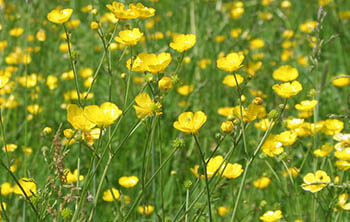Take the Fight to Weeds This Fall
Nov 04, 2019

Did you know fall is an excellent time for weed control?
Weeds like buttercup, chickweed, henbit, deadnettle, and musk thistle germinate in the fall and remain dormant in a rosette stage until temperatures start to warm up in the spring. Applying herbicide now is ideal since the seeds are not well established. Once the weeds reach their flowering stage, control is much more difficult.
Fall applications don’t have to be complex. For effective control, use 2,4-D ester at 2-3 pints per acre. For contact and residual control, use 1½ pints of GrazonNext® per acre. Apply herbicides with a minimum of 20 gallons of water per acre.
For optimum results, consider adding adjuvants to your weed control. We recommend WinField® United’s Powerlock®, a time-saving premix which provides the combined benefits of Preference® and Interlock®, offering improved deposition, enhanced canopy penetration, and reduction of spray drift in one convenient formula. Use 8 ounces per acre.
For best results, apply when daytime temperatures have reached the mid-50s for three consecutive days.
Visit your local Co-op for all of your fall spraying needs.
Weeds like buttercup, chickweed, henbit, deadnettle, and musk thistle germinate in the fall and remain dormant in a rosette stage until temperatures start to warm up in the spring. Applying herbicide now is ideal since the seeds are not well established. Once the weeds reach their flowering stage, control is much more difficult.
Fall applications don’t have to be complex. For effective control, use 2,4-D ester at 2-3 pints per acre. For contact and residual control, use 1½ pints of GrazonNext® per acre. Apply herbicides with a minimum of 20 gallons of water per acre.
For optimum results, consider adding adjuvants to your weed control. We recommend WinField® United’s Powerlock®, a time-saving premix which provides the combined benefits of Preference® and Interlock®, offering improved deposition, enhanced canopy penetration, and reduction of spray drift in one convenient formula. Use 8 ounces per acre.
For best results, apply when daytime temperatures have reached the mid-50s for three consecutive days.
Visit your local Co-op for all of your fall spraying needs.